Immigration Services
We help businesses, families, and individuals navigate the immigration process and reach their goals
Corporations / Employees
Families
Individuals
Investors
Students
Victims
Immigration Services
Main Menu
RFE/ NOID Response
The particulars and peculiarities of the American immigration system can seem beyond obtuse from time to time. If you have received an RFE or NOID notice from the USCIS then your frustrations with the system have suddenly become far more acute. Your application or petition will be halted for the duration of these notices being issues, and the various deadlines and thresholds associated with your documents do not necessarily stop while you sort out the problem. A failure to respond in a timely manner, or to respond effectively to the issues identified by USCIS, could result in the rejection of your plea, potentially sending you all the way back to the starting line.

It is natural to get anxious if USCIS issues you a RFE or NOID, but a skilled immigration attorney can explain in detail what the review agent is actually saying, and will work with you to develop an effective full-spectrum response that will get the process moving in the right direction once again.
What is RFE
Request for Evidence (RFE) is a notice sent by USCIS when your petition lacks the supporting evidence, usually documentary in nature, that is necessary for the successful approval of your submission. In simple cases, it can be a request for a copy of the birth certificate, passport, degree, marriage license, or any other easily obtainable document. Requests for financial statements and proof for the employee-employer relationship are fairly common. More complicated RFE’s require strong, considered arguments and the careful collection of the documents that will satisfy the Request without question. If you fail to respond to RFE promptly or respond in an unsatisfactory manner, the petition is likely to be rejected. Don’t risk it by attempting to respond on your own; help is just a phone call away.What is NOID?
Notice of Intent to Deny (NOID) is sent by USCIS to inform the petitioner that the officer intends to deny the application. The purpose of issuing NOID is to outline the reason for denial and avoid wasting time in re-petitioning, legal motions, and appeals. A NOID is more serious than RFE as it means there is a visa eligibility issue. A NOID might also be issued if USCIS finds some criminal history or finds proof of you violating the immigrant status in the past. A NOID allows you to make a defense for yourself, and it is therefore extremely important to hire an expert attorney to represent you. The attorneys at Rijal Law Firm are experienced in dealing with complicated RFE’s and NOIDs and will make sure the response is supported by the strongest arguments and the most complete evidence and documentation.Difference between RFE and NOID
When a USCIS office adjudicates an immigration benefit petition or application and wants answers to certain questions, they issue a Request For Evidence, or RFE. If the officer intends to deny the petition and believes that an argument challenging the denial in advance of issuance is appropriate, the officer issues a Notice of Intent to Deny, or NOID.What to Do If you have received RFE
If you have received an RFE the first thing you need to do is seek professional help from an immigration attorney. USCIS provides 87 days to respond to an issued RFE. In this time the attorney will help you produce the requested evidence and documents that will address the requested information point by point. There are three ways to respond to an RFE:1. Provide a full response that provides all the requested evidence
2. Provide a partial response by providing some of the requested evidence
3. Withdraw the petition
There is a narrow window to respond to RFE and so you should retain an attorney to help you prepare a well-written cover letter giving the necessary clarifications, specific arguments that address the issues raised by the USCIS, and a cover letter detailing the exhibits that support the arguments and clarifications. Even if you have not hired an attorney while filing the immigration form, it is advisable to seek assistance if you are responding to an RFE so as to improve your chances.
What to Do If you have received NOID
If you receive NOID, don’t panic. USCIS gives 30 days to respond to the NOID. The attorney will ensure that all the aspects of the notice are addressed in detail before submitting the response. It is highly recommended to submit evidence that addresses all the issues mentioned in the NOID.What to do if a petition is denied after the RFE response?
If you and your attorney have responded to the NOID or RFE and still received a denial, you need to decide on an appropriate next action. On the type of visa applied, some of the options to consider are:1. You can appeal the decision with the Administrative Appeals Office (AAO). Though some visa like H-1B doesn’t allow the petitioners to appeal after the denial
2. You can make a legal motion to reopen the case. Your attorney can use this if a piece of new evidence has come to light that can change the opinion of the evaluating officer or the attorney strongly believes that rejection was incorrect and there are legal means to prove it.
3. You can refile the petition in case your petition was denied based on some errors that can be fixed by refiling the petition. To make sure that the petition is free of errors, it is best to seek help from an immigration attorney.
4. You can discuss with the immigration attorney and file for a different visa, in case the petition was denied because you or the sponsor was not eligible for the particular visa category.
These decisions about responding to an RFE or NOID should be made in partnership with an immigration attorney who is fully informed of your cases unique circumstances and details. Our team of attorneys has accumulated years of experience helping people respond successfully to RFE and NOID notices. If you have received one of these notices then there is no time to lose, contact us now.
